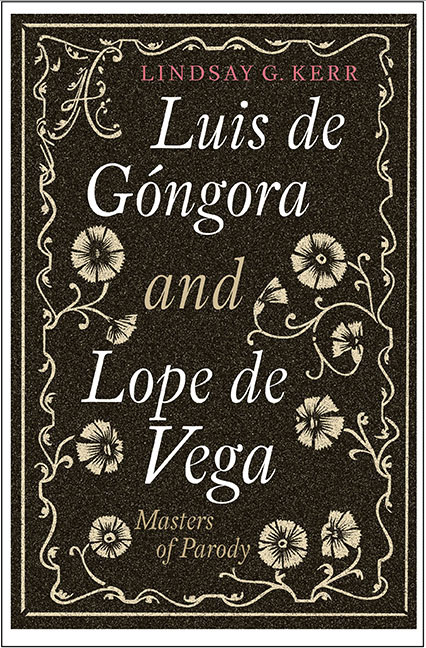Summary
This study has attempted to pose, and answer, new questions regarding the literary relationship between Luis de Góngora and Lope de Vega, particularly in the twilight of their respective careers. Neither of these poets turned to parody without precedent. That they did turn to parody, however, after their greatest career successes and at the end of their lives, establishes a correlation between lateness, decline, mastery and humour. These texts show an awareness of kairos in the midst of the endless and shapeless chronos, a moment of truth, of reflection; an event that must not simply continue on in the predictable rhythm of masterful creation followed by inevitable decline. Parody after (and incorporating) mastery is shown by Lope and Góngora (and possibly by other artists such as Beethoven or Verdi) to be aware of its terminal position and, as such, both accepts and humorously defies the final tock of the clock. The processes and paradoxes of parody allow these poets to mythologise their own poetry, incorporating the past while simultaneously looking forward to the next leap in poetic progress, even if they are not there personally to experience it. The legacy of Lope's and Góngora's counter-conventional paradigm is the subject of another study, but whatever course lyric poetry might take, it begins at the kairotic moment of parody.
In this book I have attempted to read La fábula de Píramo y Tisbe and the Burguillos anthology in a way that allows a paradigm of late style to emerge, rather than imposing any preconceived theory upon the texts. This study has demonstrated the developmental and parallel intertextual, self-reflexive devices employed by both poets: their metaphors and multiplications of meanings, their challenges of and deference to poetic authorities of the past, and their appreciation of the absurd. What we can glean from the analyses is that, to a large extent, Lope and Góngora use the same methods ‒ regardless of style ‒ in order to renew, to pay homage and to acknowledge the limits of art. Contrary to the standard critical view of these poets as opposites with dissimilar motives, I have illustrated through this evaluation of late style and parody that Góngora and Lope share in a poetics of solidarity.
- Type
- Chapter
- Information
- Luis de Góngora and Lope de VegaMasters of Parody, pp. 193 - 194Publisher: Boydell & BrewerPrint publication year: 2017

